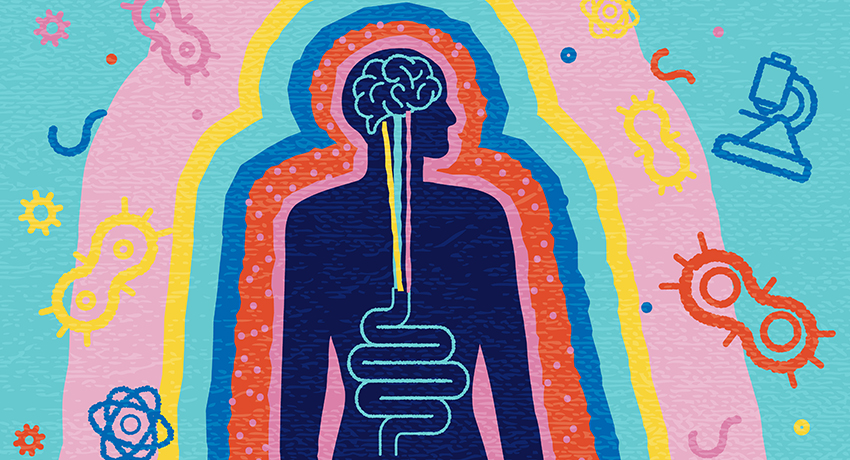That bloating after lunch, persistent brain fog, or unexplained mood swings might not be related to just a bad day. They could be your body’s warning signs of an imbalanced gut microbiome, which consists of trillions of microorganisms in the digestive tract. Many people experience occasional digestive discomfort, but how do we know when our symptoms indicate a more serious gut health issue?

According to Pritesh Mutha, MD, a gastroenterologist at UT Physicians Multispecialty— Cinco Ranch and associate professor of gastroenterology at McGovern Medical School at UTHealth Houston, timing and persistence are key indicators.
“Any symptom that started a few days ago because of an infection or something you ate can be attributed to something happening instantly,” Mutha said. “But many times, your underlying immune system has been compromised, making you vulnerable to stimulants that others don’t have any problem with.”
This vulnerability is revealed as recurring symptoms that shouldn’t be dismissed as an occasional occurrence. Mutha emphasized that even acute symptoms often have underlying chronic causes.
Common signs of gut imbalance
Gut imbalance presents differently from person to person. When people have digestive issues for years — heartburn, inflammation, irritable bowel syndrome, acid reflux, stomach pains, constipation, or diarrhea — these ongoing symptoms indicate a pattern.
“Just because you’ve only recently noticed symptoms doesn’t mean you were healthy before,” Mutha said. “The disease process started long ago because of poor dietary and lifestyle habits.”
The mind-gut connection
Your gut does more than digest food. It also affects your mind. Mutha said there is a strong relationship between stress, anxiety, and gut health. Stress affects your gut health, and your gut health affects your stress levels.
Mutha said stress manifests differently from one person to another. Some may get diarrhea, some may have abdominal pain, or some may have heartburn. If your gut microbiome is bad, it can also present as depression or worsen this underlying condition.
“It’s a two-way street,” Mutha said. “You ruin your gut by eating bad food, and then it can manifest as depression, low energy, anger, or anxiety.”
The gut-reset solution
Mutha recommends specific factors to reset the gut and improve overall health. What does a “gut reset” actually mean? Does it relate to a cleanse? Mutha described it as stopping the bad exposures and improving the healthy exposures. He particularly emphasized plant diversity as the most important factor to start with.
“This includes consuming 30 different types of plants each week, such as fruits, vegetables, legumes (beans and lentils), whole grains, nuts, seeds, or spices in variety,” Mutha said.
Mutha recommends the following six factors to reset the gut and improve overall health:
- Diet: Consume a whole-foods, plant-based (WFPB) diet that provides the fiber, all the essential nutrients, and antioxidants for a strong gut, a healthy immune system, and a healthy you. Avoid animal products and processed foods.
- Physical activity: Exercise regularly to boost good digestion and good bacteria in the gut.
- Sleep quality: Aim to get around six to eight hours of quality sleep to help heal a leaky gut and restore balance in the gut microbiome. It varies based on each individual.
- Stress management: Practice mindfulness and meditation to avoid stress-related mental and physical illnesses, and protect against inflammation.
- Toxin exposure: Do not consume toxins (e.g., alcohol, tobacco, marijuana, illicit drugs) that destroy healthy cells and healthy bacteria in the gut.
- Social relationships: Keep in touch with family and friends. Good social relationships have been shown to positively impact the gut’s microbiome.
This approach helps develop a diverse gut microbiome, which Mutha considers the secret to a healthy gut and body. By adding 30 different plant points, Mutha said individuals consume fewer poor food choices and feel better.
“If you fix these factors, you can start seeing differences in three weeks. By three months, you’ll see significant differences in your overall disease process,” Mutha said. “The most important is diet; once you fix that, all the other factors start going in the right direction.”
*Before making any diet changes, consult with a primary care physician.


